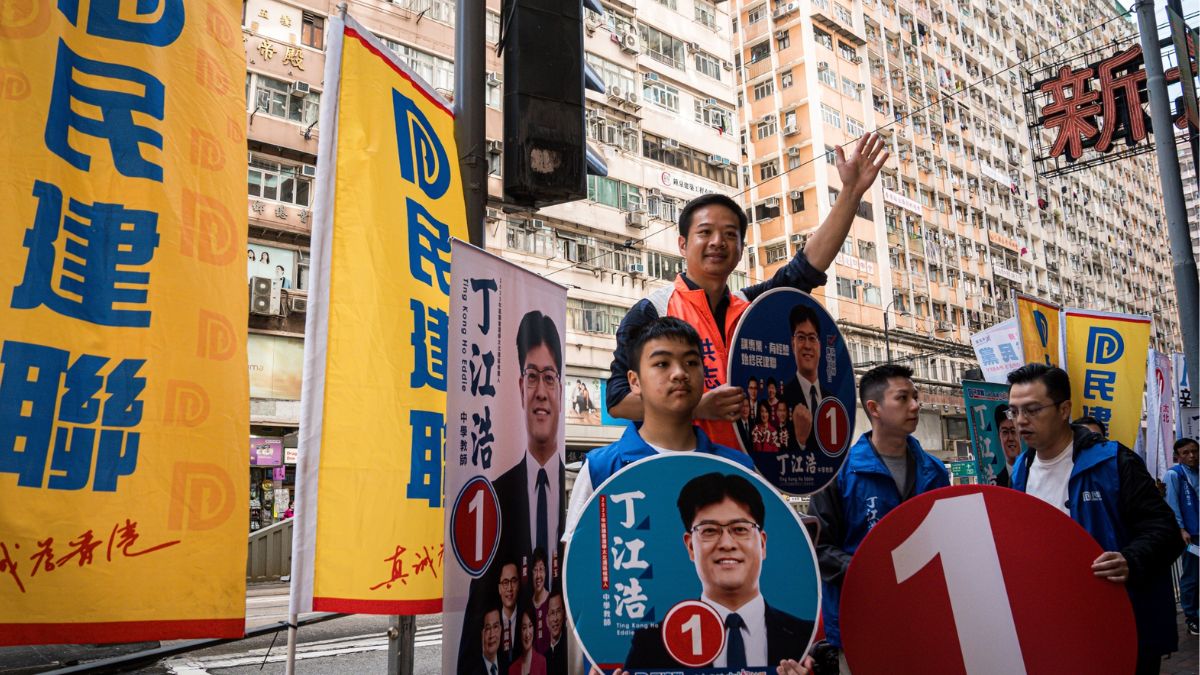Last Sunday, Hong Kong’s district council elections revealed a notable decline in civic participation, despite government initiatives to encourage turnout. The low voter numbers reflected signs of apathy and political disengagement, raising concerns about the state of democracy in the city.
The increasing influence of mainland China in Hong Kong’s political affairs has cast a shadow over the region’s promised autonomy.
The controversial 2019 extradition bill served as a catalyst, sparking widespread protests as Hong Kong residents perceived it as a direct threat to their cherished freedoms. These demonstrations laid bare a deep-seated worry about the potential impact on the legal system and civil liberties, leading to a profound sense of discontent among the people.
In the aftermath of the historic 2019 protests, a governmental overhaul led by figures like Carrie Lam and now John Lee has left an indelible mark. This transformation reached its zenith with a sweeping electoral system change in 2021 which aimed to ensure only government-approved ‘patriots’ could run Hong Kong, challenging the democratic ideals that once thrived in the country.
What has caused the people to lose faith in Hong Kong’s democracy?
The loss of faith in democracy in Hong Kong can be attributed to several factors. One significant concern is the perceived erosion of the ‘one country, two systems’ principle that was promised when Hong Kong was handed back to China in 1997. The growing influence of mainland China in Hong Kong’s political affairs has raised fears in the public that the region’s autonomy is diminishing.
The controversial extradition bill proposed in 2019 further fueled discontent. Many Hong Kong residents saw this bill as a threat to their freedoms, as it would allow individuals to be deported to mainland China for trial. Massive protests erupted, reflecting a deep-seated worry about the potential impact on the legal system and civil liberties.
Additionally, changes to Hong Kong’s electoral system have been a source of discontent. Critics argue that these changes, which give greater control to pro-Beijing authorities in screening and selecting candidates, undermine the democratic process and limit the choices available to the people.
The government’s handling of these protests also played a role. Allegations of police brutality and the perceived unwillingness of the government to address the protesters’ demands have contributed to a sense of frustration and disillusionment with the democratic process.
The Present Situation
As Hong Kong conducted district council elections last Sunday, Chief Executive John Lee embarked on an extensive campaign to boost participation. Free museum days, discounted flights, and loudspeakers were deployed in a meticulously planned effort to invigorate the polls. Despite these outreach endeavours, signs of political apathy and disengagement persisted, exemplified by record-low turnouts in the elections.
In this intricate ballet of democracy, the once-significant district council elections have taken on a different weight. The proportion of directly elected representatives has dwindled significantly, with opposition parties barred. This has created a perception of a controlled and constrained democratic process.
Mr. Wong, a 26-year-old surveyor, reflects a sentiment shared by many as he expresses a lack of knowledge about the candidates and an overall sense of disillusionment. In districts like Sham Shui Po, an 80-year-old retiree named Mr. Feng echoes this sentiment, citing the treatment of activist Agnes Chow and asserting that the election has lost its democratic essence.
Recent legal actions, including incitement charges and the criminalisation of calls for boycotts, have added a chilling layer of complexity. Activists, once vocal participants, now find themselves in exile, describing the electoral system as entirely controlled by Beijing. This environment has created an atmosphere where expressing scepticism about the electoral process can have serious consequences.
As Hong Kong navigates this evolving political landscape, the outcome of the district council elections appears inevitable to many. Pro-establishment voices, supportive of the perceived stability brought by the new system, anticipate victory. In a city where genuine democracy appears to be slipping away, the district council elections stand as a poignant reflection of Hong Kong’s changing political rhythm.
The Implications on the Country
As the city undergoes a profound political transformation marked by restricted electoral processes and growing influence from mainland China, the implications for the country are far-reaching.
Firstly, the erosion of democratic principles in Hong Kong strains diplomatic relations, eliciting concerns from democratic nations worldwide. Countries may reconsider their engagement with the region.
Economically, Hong Kong’s status as a global financial hub may face challenges. Investors may adopt a cautious approach, assessing the political stability and the potential impact on business environments, affecting its attractiveness to international businesses.
On the domestic front, the diminishing faith in democracy may fuel social unrest and discontent among Hong Kong residents. This might show up in various forms including protests strikes, etc.
The geopolitical ramifications also extend to global governance discussions. The contrast between the promises made during the handover in 1997 and the current state of affairs in Hong Kong becomes a case study of the challenges faced by the international community in preserving democratic norms in the face of evolving geopolitical dynamics.
In essence, the fading democratic pulse in Hong Kong casts a long shadow, impacting not only the city itself but also triggering a broader conversation about the fragility of democratic principles in an increasingly interconnected world. The consequences are complex, intertwining diplomatic, economic, and social dimensions that collectively shape the narrative of Hong Kong’s place on the global stage.

